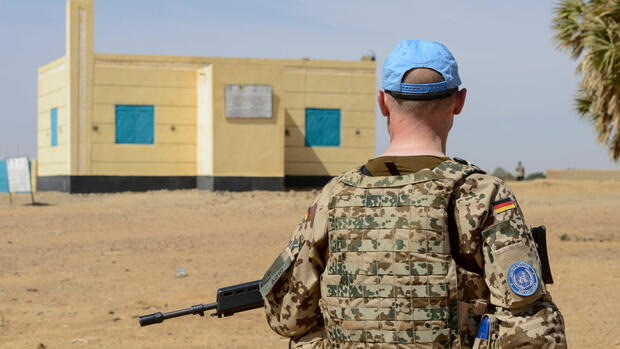Cape Town, Berlin Germany will significantly reduce its military presence in Africa – also because the benefit is increasingly in question. The last Bundeswehr soldier should have left Mali by May next year at the latest. Federal Defense Minister Boris Pistorius (SPD) has already brought an earlier deduction into play. Instead, the Bundeswehr is planned to participate in the EU training mission EUMPM in Niger, but with a maximum of 60 soldiers.
Since 2013, Germany has been involved in the UN mission Minusma in Mali, which aims to stabilize the situation after French combat troops pushed Islamist extremists out of the north of the country. Around 1,100 soldiers from the Bundeswehr are currently stationed there.
But even the blue helmet mission could not change the fact that the security situation in the Sahel region has continued to deteriorate, as stated in the mandate for the EUMPM mission, which the Bundestag still has to approve. “Terrorist groups have been able to expand their operational areas to large parts of Mali, Burkina Faso and, to some extent, Niger.”
France recognized that the previous strategy was unsuccessful and withdrew its troops last year – also under pressure from the government in Mali’s capital, Bamako. The Malian government, which came to power in a coup, has also been making the task of the Bundeswehr more difficult for months, for example by refusing flight permits for Heron reconnaissance drones.
The defense, foreign and development ministries therefore agreed last November to end the German mission in Mali by May 2024 at the latest, unless the security situation requires an earlier withdrawal.
logistical problems
Federal Defense Minister Pistorius declared at the end of January that under the current conditions it made absolutely no sense to stay in Mali until May next year. Originally, Foreign Minister Annalena Baerbock (Greens) in particular had pushed for the mission to continue so that the Bundeswehr could still provide logistical support for the elections planned for next year in Mali.
There are doubts about the purpose of the mission in Mali.
(Photo: IMAGO/Joerg Boethling)
Denis Tull, Africa expert at the Stiftung Wissenschaft und Politik (SWP), is also in favor of the Bundestag extending the Minusma mandate, which is currently limited to the end of June 2023, again. In a current analysis, he writes, this could have a stabilizing effect on Mali in the “current high-risk phase” and possibly positively accompany the transition to a new order.
But there are also very practical logistical considerations that speak against an earlier withdrawal, according to security circles. Military material that would fill 1,600 containers has to be brought back to Germany, from machine guns to a modern field hospital to heavy CH-53 transport helicopters, which the Bundeswehr has currently promised to transport the wounded.
>> Read here: Putin’s man for the rough: That’s how dangerous “Wagner” boss Prigozhin is
A hasty withdrawal would risk leaving equipment behind and falling into the hands of Islamists – or Russian mercenaries from the Wagner squad who have filled the power vacuum left by the French.
“Smaller Footprint” in Africa
According to many experts, a new strategy makes sense because the West has simply taken on too much in West Africa. Nation-building had already failed in Afghanistan, i.e. the establishment of a functioning state structure. Why should it be easier in the Sahel with several crisis countries?
The defense minister (SPD) declared at the end of January that under the current conditions it made no sense at all to stay in Mali until May next year.
(Photo: dpa)
The aim of the Federal Government is therefore to leave a “smaller footprint” in Africa in the future, i.e. to have a possibly better effect with fewer soldiers.
For this reason, the Bundeswehr should in future concentrate on supporting the government in Niger in building up its armed forces. According to the EUMPM mandate, the country is playing an increasingly important role in view of its fragile political stability, which is relatively high in regional comparison.
In April 2021, for example, Niger carried out a constitutional change of head of state for the first time in its history. President Mohamed Bazoum has declared the expansion of school and girls’ education, the improvement of the security situation, administrative reform and the fight against corruption to be the priorities of his governance.
>> Read here: Macron’s new Africa strategy could play into Putin’s hands
By the end of last year, the Bundeswehr had already been involved in the training of special forces in Niger as part of Operation Gazelle.
More: How companies can build a successful African business
